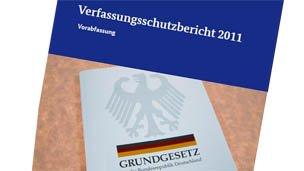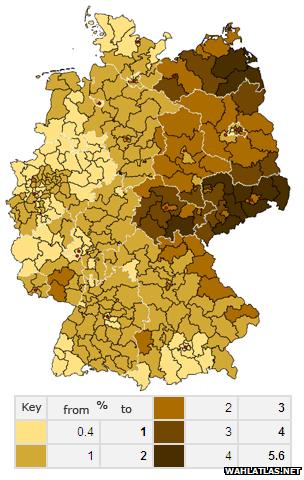Q&A: German far right bucks European trend
- Published

The intelligence agency's extremism report for 2011 has just come out
While far-right or right-wing populist parties have won seats in national parliaments in countries such as France, Italy and the Netherlands, no similar breakthrough has occurred in Germany despite a relatively favourable electoral system.
The latest annual report by the German domestic intelligence agency confirms a decline in the membership of "right-wing extremist" parties over the last few years.
However, it also reports a growing neo-Nazi scene, and evidence of widespread racist and anti-Muslim sentiments means that an upsurge in support for such parties cannot be ruled out.
<paragraph>Who are the main players?</paragraph>

The NPD fared better in the former East Germany than in the West in 2009
<paragraph>How have they fared in recent elections?</paragraph>
<paragraph>Why is the NPD stronger in the east?</paragraph>
<paragraph>Why are there more neo-Nazis?</paragraph>
<paragraph>Are far-right parties doomed?</paragraph>
<link> <caption>BBC Monitoring</caption> <url href="http://www.monitor.bbc.co.uk/" platform="highweb"/> </link> <italic> selects and translates news from radio, television, press, news agencies and the internet from 150 countries in more than 70 languages. It is based in Caversham, UK, and has several bureaux abroad. For more reports from BBC Monitoring, </italic> <link> <caption>click here</caption> <url href="http://www.bbc.co.uk/news/world-18190302" platform="highweb"/> </link>
- Published2 July 2012
- Published27 March 2012
- Published7 December 2011